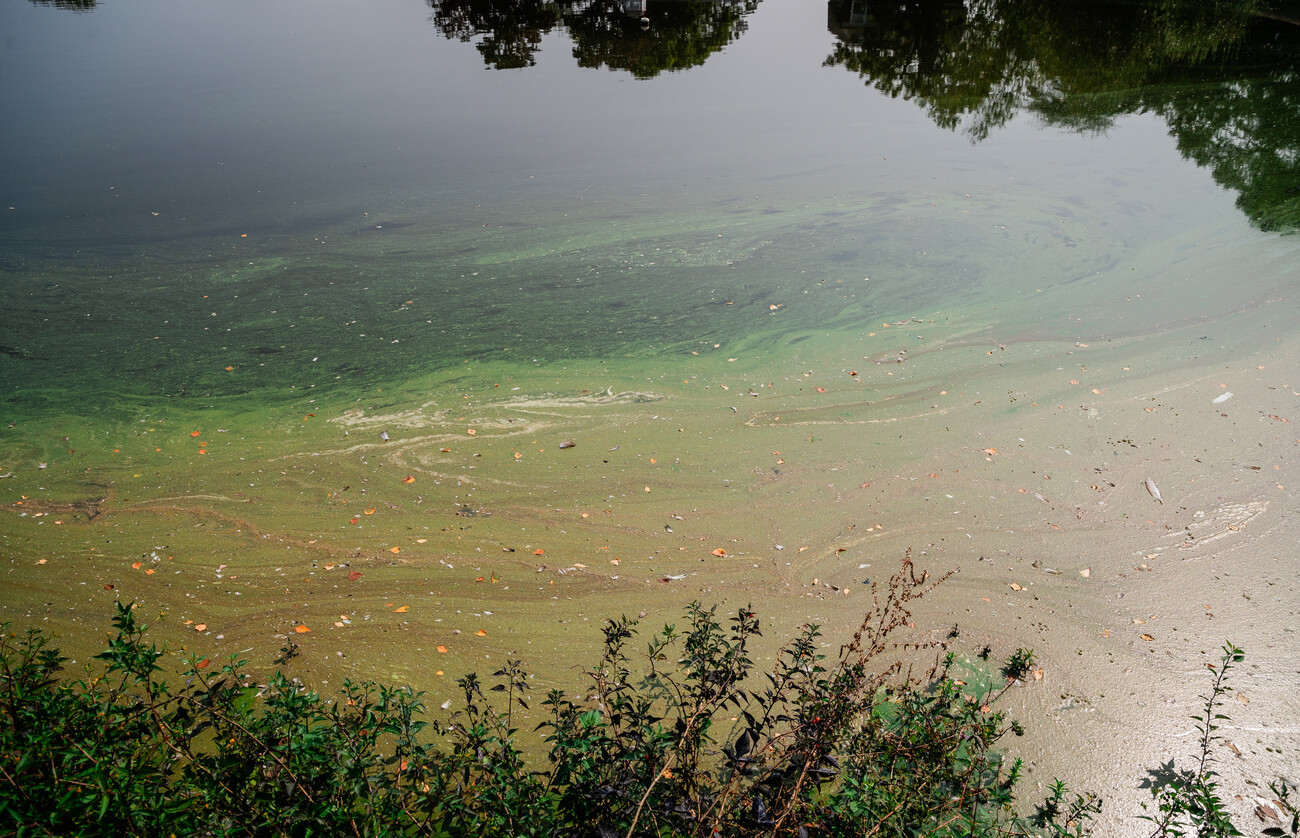The Board of Health issued a public-health advisory on Wednesday, Aug. 30, due to a suspected outbreak of blue-green algae at Redd’s Pond.
This type of algae is also known as cyanobacteria, which can be somewhat common in fresh bodies of water.
“Blue-green algae can form harmful blooms in lakes, ponds, and rivers that make the water murky, and can sometimes make the water look like pea soup or paint,” the advisory reads. “Blue-green algae blooms can produce toxins that may make people and pets sick. Toxins may be present within the algae cells or in the water.”
Residents are strongly encouraged to keep themselves as well as their pets from swimming, swallowing, or coming into contact with the water until it is once again deemed safe.
Human ingestion of blue-green algae can cause gastrointestinal distress. Depending on the specific toxin, it can affect the functioning of the kidneys, liver, and/or neurological systems, and in severe cases it can cause death. Symptoms for dogs include vomiting, staggering, drooling, or convulsions.
According to Director of Public Health Andrew Petty, the outbreak is unpredictable in terms of length.
“The algae blooms may last for weeks or may disappear quite quickly” Petty wrote in an email. “We will coordinate with the Massachusetts Department of Public Health (DPH) over the coming weeks. DPH water sampling will determine when the advisory can be lifted.”
Board of Health member Joanne Miller does not expect the task of keeping Marbleheaders out of the pond in its current state to be difficult.
“I’ve never seen people going into the pond to swim,” Miller said. “I don’t think it’s a big bathing pond. I grew up in the country and my dad had a pond and the algae is just not inviting.”
The DPH recommends that the recreational water advisory not be lifted until two consecutive weekly samples show algae-cell counts below the safe limit of 70,000 cells/milliliter of water.

